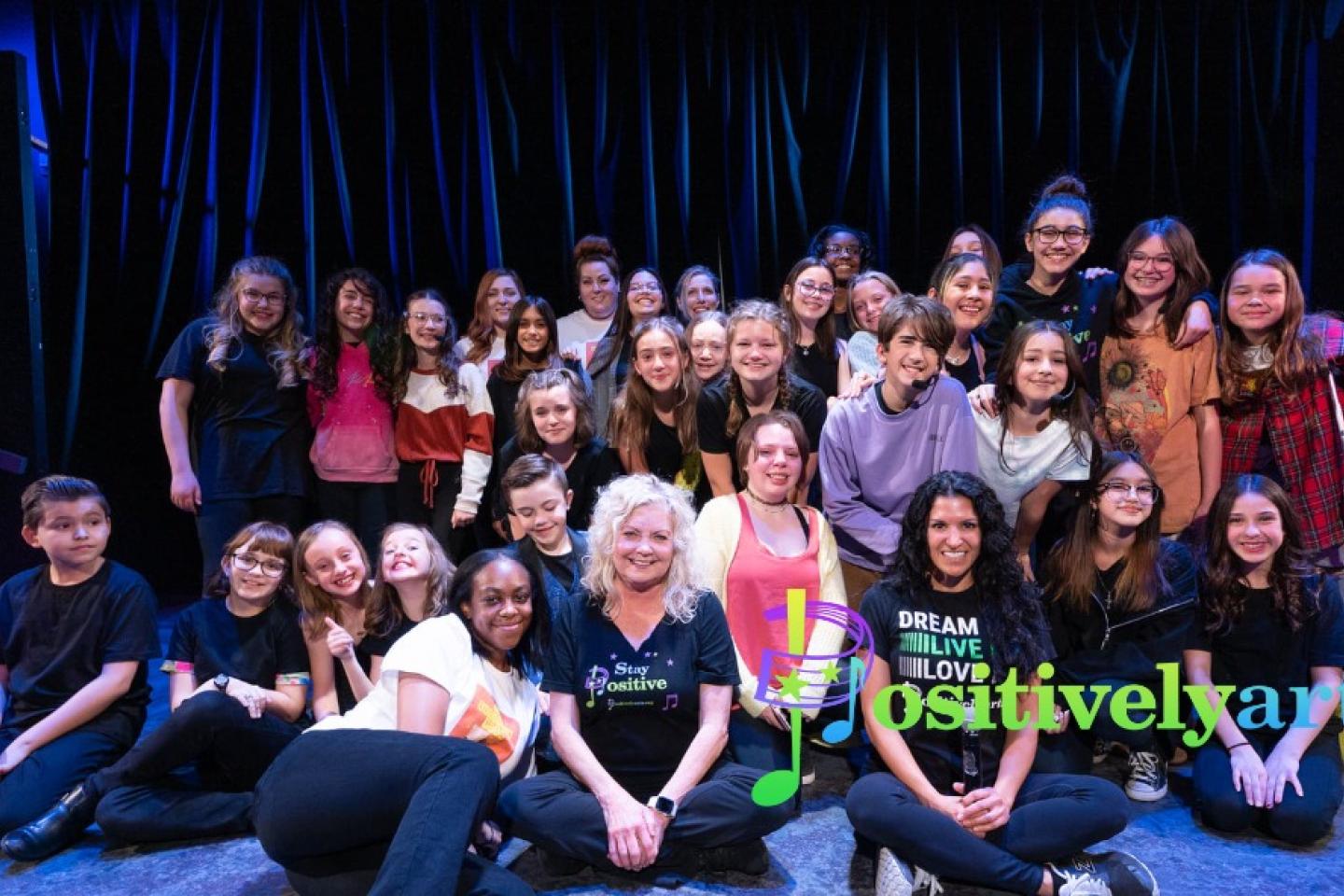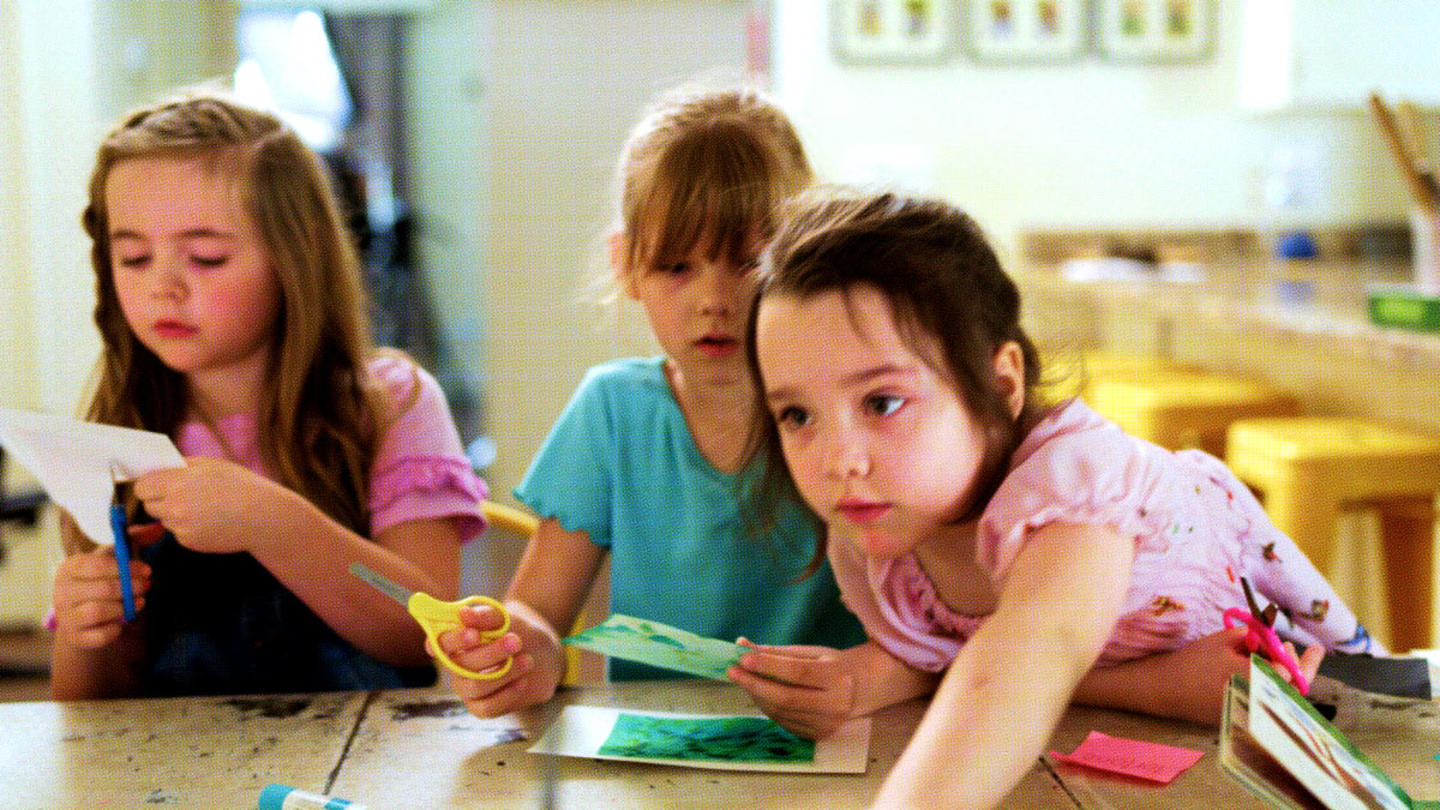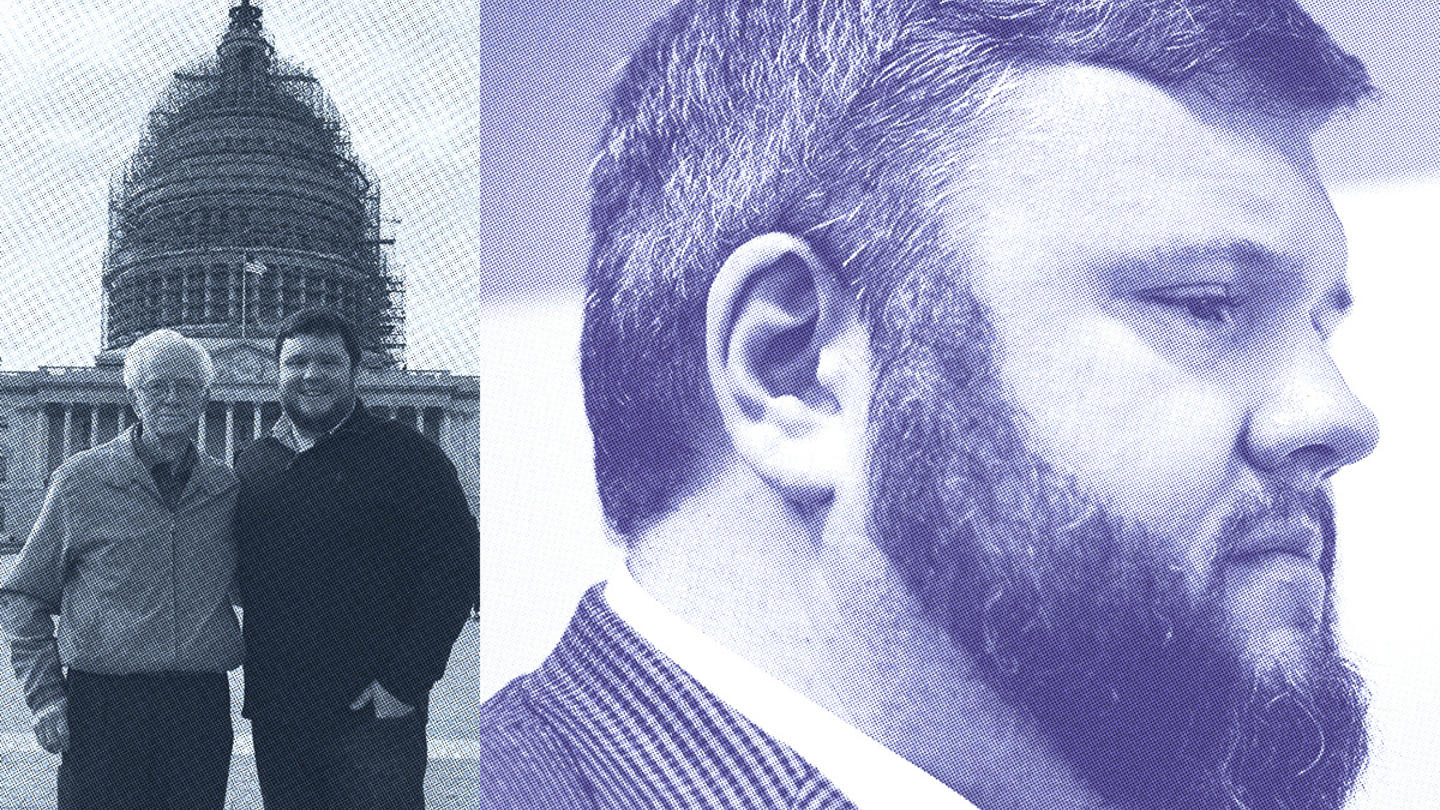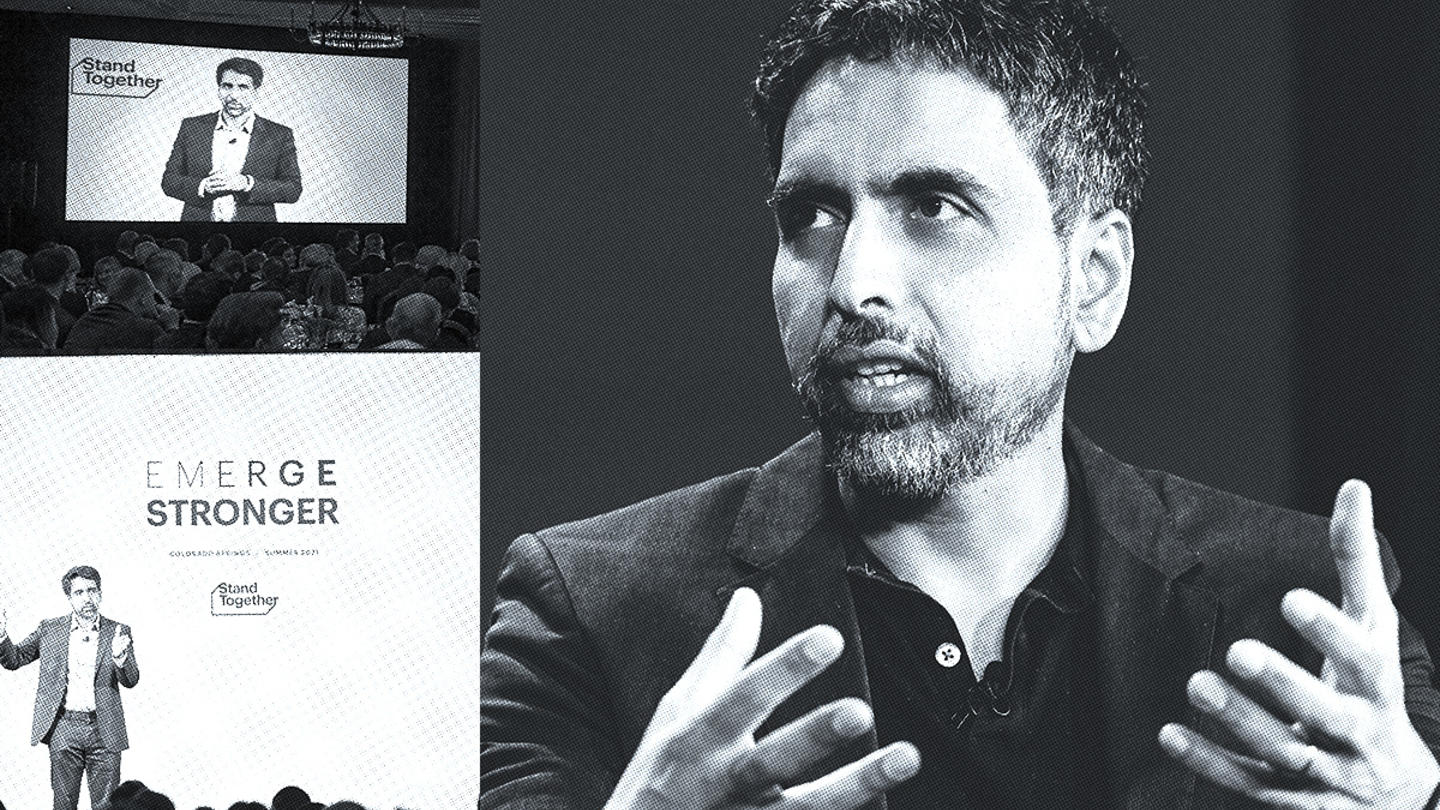"As a child going through [school], you're just like, 'Oh, this is the system, I have to learn how to operate in it," says Pilita Simpson. After a successful career singing for Disney and headlining on the Las Vegas strip, she realized "I can change this."
Now, through Positively Arts, she is.
When Simpson was 13, she lost her father. She found that her school was not equipped to help her process and heal from the trauma. The life skills she needed at the time — empathy, emotional expression, communication, and self-confidence — just didn't have a place in a traditional academic setting. So she turned to another route: the performing arts.
She performed recreationally while pursuing a track to become a doctor — but after completing undergraduate studies and preparing for medical school, she "secretly auditioned" for Disney, and the path ahead changed.
From then on, Simpson focused on her passion for both the arts, and education. While working as a teaching aide, she recognized the same phenomenon she had experienced as a 13-year-old in school: constraint.
"I would see situations come up where it was very evident that a child's learning style was different from the one that they supported in public schools," she describes. "I wanted to be like, 'Just ask this question or just find out the motivation or the understanding,' [but] there was no time or space, even when the teachers had the best intentions."
Simpson began to envision a new sort of education: one that uses the transformational power of the arts as a vehicle to empower youth, and where constraints are thrown out the window.
Today, she helms Positively Arts, a nonprofit in Las Vegas that is set to launch a microschooling program to do just that. Alongside traditional academics, Positively Arts aims to prepare learners for the future by using a variety of arts-integrated projects that put children in the driver's seat of their education — and their emotional and personal growth.
How Positively Arts Las Vegas uses art differently
Contrary to what its name might indicate, Positively Arts is not designed to create performing arts professionals: rather, it's a program that uses the arts as a tool to build empowerment in youth, no matter what their interests and skills are.
"We're merely using the arts as a vehicle to build the life skills and the confidence and the resilience," says Simpson.
The organization's goal is to supplement traditional academics with life skills, primarily empathy, confidence, time management, collaboration, and communication. Education is all project-based, learner-guided learning.
Positively Arts microschool is only in their first pilot year, but the after school program has been running successfully since 2014. They have a campus that is anything but typical. It encompasses a 9,000 square foot, fully functional space. Learning spaces are not traditional classrooms; rather, they are recording studios, editing suites, soundstages, and more.
Learners have the resources to pursue interests as far-ranging as dancing, singing, marketing, podcasting, acting, songwriting, script writing, music video direction, and video editing. One need not be an extroverted, musically-inclined performer to thrive within Positively Arts. There are equally engaging options for those who find their stride behind the scenes.
"Alongside [traditional academics], we teach them how to protect their IP, how to make a business plan, [and] we still do all the dance," Simpson says. "We still do all the vocals. We still do acting, improv…depending on who walks through our doors, they design something that we would have never even imagined based on what they wanted."
Simpson remembers one girl who arrived at the program as a pre-teen, suffering from self-harm and extremely low self-esteem due to the pressure to achieve in school. For the entirety of her first six months at Positively Arts, she didn't speak.
"We were trying everything," Simpson says. "We tried different art forms to get her to open up … [ultimately] it was from meeting other kids in the program who had her shared interests."
Once she began participating in open discussions as part of Positively Arts' curriculum, says Simpson, she "started hearing fears that she thought only existed in her head. And when she heard those fears from everyone around her, she became super confident."
In the years that followed, she began singing national anthems at public sports events; competed in Miss Nevada; started her own business selling Armenian goods; opened a bakery with her sister; and was just asked to perform Off-Broadway — all thanks to the confidence and self-assurance instilled in her at Positively Arts.
"She went from someone so afraid to speak and share what she wanted because of the constraints from the world, to someone who created her own path," Simpson says.
At Positively Arts, imperfection is the goal
At Positively Arts, mistakes, imperfections, and questions aren't roadblocks — they're the whole point.
"The goal is never to turn out perfect pieces, perfect songs, perfect dances," Simpson says. "The goal is to turn out students who now have new habits of thinking, who are creating work. We're creating opportunities for kids to use their voice in a world where a kid can go a whole day in a public school system and never speak … Some of our biggest feedback is, 'My child never used to talk to me in the car. And now my kid is just so expressive and tells us all these dreams that they didn't even know."
Through asking questions, making mistakes, struggling through problems, conflict resolution, and working collaboratively — all inherent parts of collaborating with their peers on any part of an arts-based project —learners at Positively Arts go on a journey of self-discovery.
"It's self-exploration through artistic discovery," Simpson says. "It's empowerment. It's confidence-building, and it's the collaborative element."
Success isn't about grades or university acceptance "It's the journey, not the output, that matters," she says.
The curriculum is a living, constantly-evolving collaborative process. There are frequent surveys, feedback, and meetings with not just parents, but also the learners, to make sure the program is serving them as best as possible. Learners have weekly council meetings in which youth give feedback on how the curriculum and structure is working, from the bottom up.
"Success is very much a learner who can not only tell you what their dreams and passions are, but how do I achieve that?" Simpson says. "How do I manage my own time? How am I self-motivated? How do I gracefully and respectfully work with others? How do I not only continue to work on my skills but empower those around me? Success is giving them the tools to mitigate their stress, fear and anxiety."
What's in store for Positively Arts?
Positively Arts is currently finishing up its summer pilot program, testing out their arts-integrated learning modules.
They are set to launch their arts in education microschooling program this fall, serving two student cohorts: one for 5-9 year-olds, and one for 13-14 year-olds. Eventually, they aim to turn the arts-based program into published, universally-accessible modules that can be shared with other microschooling founders across the country.
Through Simpson's Disney connections, they're opening a new branch in Orlando, which will hopefully also develop into a full-fledged microschooling program. Similarly, she has been working with her Harvard School of Education consortium since 2005 to proliferate best practices for leveraging arts in education.
As for Simpson herself, she is still performing, and sees keeping active in the performing arts the best way to strengthen Positively Arts' curriculum moving forward.
"I ended up headlining a show here in Las Vegas which allowed me to meet all the teaching artists, who eventually ended up working for me at Positively Arts," Simpson says, "I travel around the world and I do live events, and that keeps me relevant because now I can use best practices and the production performing arts world, and bring it into the studio."
Learn more about Stand Together's K-12 education reform efforts.




